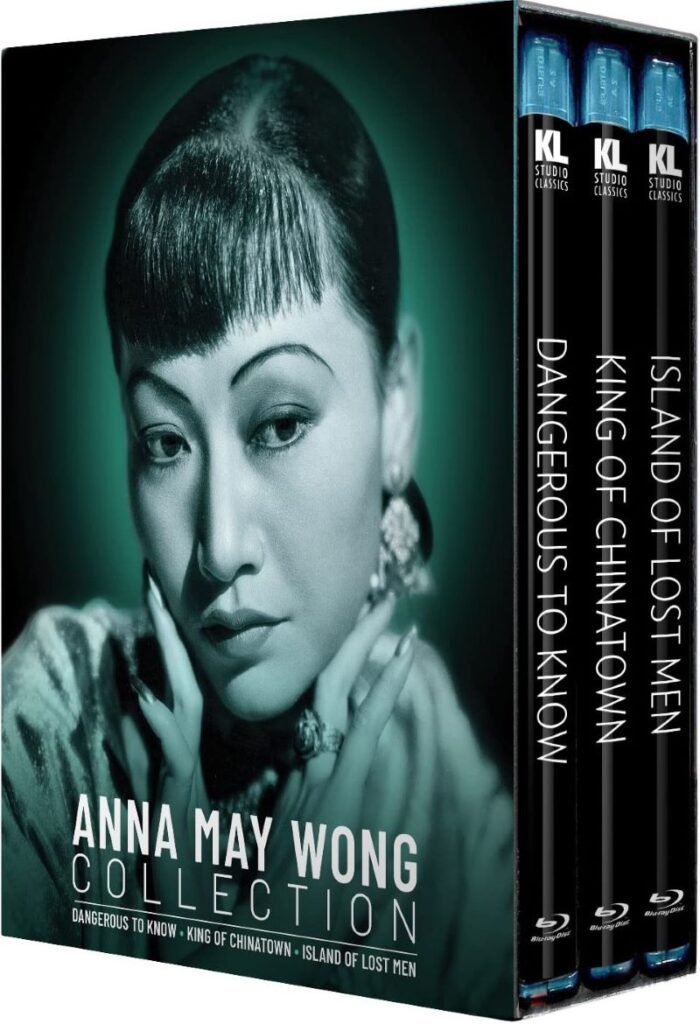
Kino Lorber’s new box set shines a light on a string of 1930s films starring the iconic Anna May Wong. In an era when Hollywood was so incredibly racist that they typically cast white actors to perform Asian roles, Wong was able to carve out a headlining career that didn’t rely on stereotypical characters or forced accents. While her work has been fairly obscure in recent times, this set succeeds in returning her to the conversation and making her films easily accessible.
Dangerous to Know (1938) finds Wong playing the confidant to gangster Steve Recka (Akim Tamiroff). The story is largely centered on Recka’s pursuit of a classy young socialite named Margaret (Gail Patrick), with his crass largesse constantly rebuffed by her society friends and family. Wong’s character doesn’t have much to do other than serve as a shoulder for Recka to cry on as he bemoans his inability to infiltrate high society in spite of his enormous ill-begotten wealth.
Island of Lost Men (1939) is the star of the set, a twisty noir gem set in the remote jungles of Malaysia. Wong plays the devoted daughter of a general accused of embezzling government funds, tracking him down at an isolated compound ruled by a deranged tin-pot dictator. With the money in play and the compound surrounded by restless cannibal natives tired of being bossed around by an insolent outsider, the constant double crosses inevitably lead to tragedy for most.
King of Chinatown (1939) casts Wong as a doctor standing up to the gangsters that rule her city, led once again by Akim Tamiroff. The biggest joy of this film is simply seeing Wong cast as a competent, independent doctor with no reliance on racist or sexist stereotypes. The plot meanders and never amounts to much, but Wong’s trailblazing performance is a delight.
As an actress across these three films, Wong plays her cards very close to her chest, conveying precious little emotion. Her line readings are fairly monotone, aside from when she answers yes or no questions with lilting proclamations that sound eerily similar to her onetime co-star, Marlene Dietrich (Shanghai Express). As a result, she’s somewhat inscrutable and didn’t really impress me as a performer. However, there’s no denying her legacy as an important figure in the integration of Hollywood, especially since she gained headlining status without being forced to fake an accent or play limiting roles.
Seemingly by sheer coincidence, Anthony Quinn co-stars with Wong in all three of these unrelated films. It’s a revelation to see him as a strapping young man, since his fame is mostly associated with his later career. Akim Tamiroff and J. Carrol Naish are each also featured in two films, setting up something of a theatre troupe for Wong’s films.
The Blu-rays have been produced from new 4K and 2K masters, and the results are impressive. While some minor image debris remains, the prints are mostly clean and maintain steady contrast/brightness levels throughout all scenes. DTS mono sound is crisp and clear with minimal crackle. Each film includes a commentary track by film historians or journalists, and a theatrical trailer is included with King of Chinatown. Each film is housed in a standard single Blu-ray case with independent sleeve artwork.